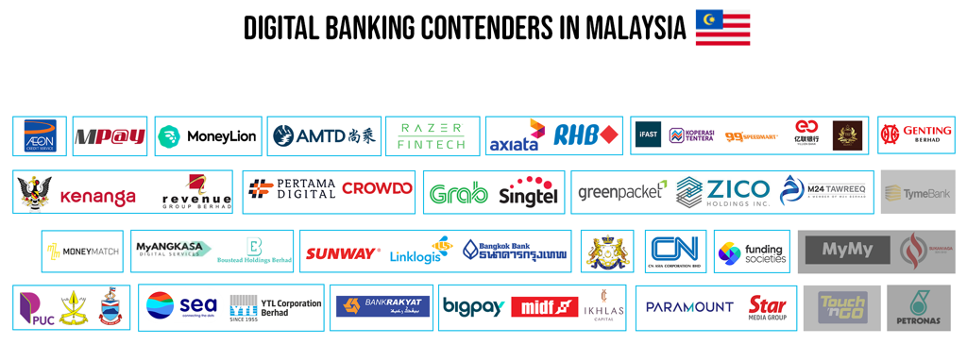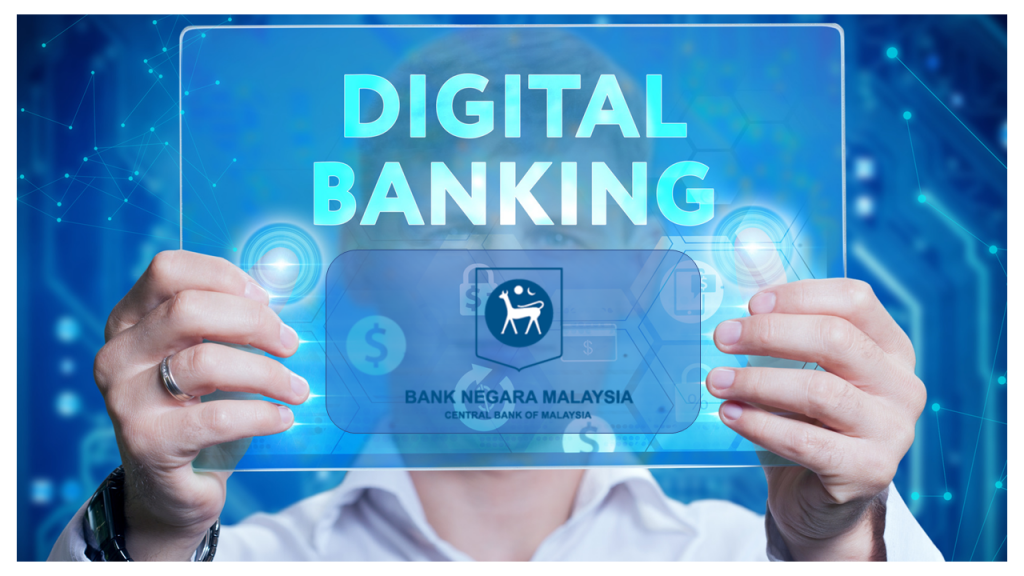近年来,马来西亚银行业发生了显著的转变,其标志就是数字银行的崛起。这些先驱性金融机构正在改变马来西亚人处理资金的方式,提供简便、易用以及以数字平台为优先的各种服务。向数字银行转变的动力不仅来自技术进步,还来自不断变化的客户口味和对更精简金融产品的需求。
马来西亚国家银行(BNM)最近发放了大量数字银行许可证,使马来西亚银行业的业务量显著增加。这些许可证使各机构能够发挥虚拟银行的功能,在无需实体网点的情况下提供各种金融服务。因此,国内企业家和全球竞争者都打入了马来西亚市场,为客户带来了别出心裁的数字银行选择。

(来源:Fintechnews)
数字银行转型
传统的银行业务安排一直依赖于实体网点和现场交易。然而,由于数字技术的出现,银行业发生了重大的根本性变化。新银行或数字银行仅在互联网上运行,利用技术提供金融服务,无需实体网点。这一战略使它们能够降低成本,提高储蓄利率,并通过移动和在线应用程序提供无缝的客户体验。
数字银行提供全天候的金融服务,只要有互联网连接,在任何地方都可以使用。客户可以使用智能手机或个人电脑毫不费力地进行交易、验证账户余额和支付账单。传统金融机构通常会对 ATM 提款、账户维护和现金转账等一系列服务收取高昂的费用。另一方面,数字银行往往降低了运营成本,使其能够提供有竞争力的收费,甚至是不收费的服务。
数字银行利用数据分析和人工智能更好地了解消费者的行为和偏好。这使它们能够提供定制化的金融指导、有针对性的产品建议以及满足特定需求的定制解决方案。数字银行可以满足很少或根本无法获得传统银行服务的人群的需求,从而为他们提供重要的金融服务。通过提供简化的账户创建程序和针对广泛的消费人群,它们为推进马来西亚的金融包容性做出了积极贡献。

随着数字交易的兴起,网络安全和数据保护日益受到重视。数字银行必须分配资源,实施强有力的安全协议,以保护消费者数据并降低欺诈活动的风险。数字银行和传统银行都有义务遵守相同的监管标准,包括反洗钱(AML)和了解客户(KYC)规则。如何在遵守这些标准与提供流畅的用户体验之间取得平衡是一个相当大的障碍。传统银行面临着来自数字银行日益激烈的竞争,这迫使它们开发和改进数字服务,以保持市场竞争力。
技术发展、客户行为转变和监管支持预计将推动马来西亚数字银行业务的持续增长。随着数字银行的扩张,有可能改变银行业务的体验,为各种背景的马来西亚人提供更多的便利性、可及性和金融包容性。然而,要在数字银行领域取得成功,就必须不断创新、开展战略合作,并在日益数字化的社会中坚定不移地致力于满足客户的要求和期望。
作者简介

tan wei yet (dba, mimm)
哥打白沙罗世纪学院商业、会计与法律系高级讲师
陈博士曾是一家日本跨国制造公司的工业从业员,而他在教育界也有超过十年的经验。在加入世纪大家庭之前,他曾在马来西亚多所学院中担任领导职务。Dr Tan在他的讲座中引进了创新与创意的混合教学法,其中包括了商业模拟游戏,让教学课程变得更刺激,也更容易灌输学生们的思维。此外,陈博士还积极参与创业咨询项目和数字创业活动。他热衷于青年人才管理,因此与跨国公司密切合作,培养和造就青年人才。陈博士是马来西亚市场营销学会的资深会员,他的研究兴趣广泛涉及数字创业和客户关系。

